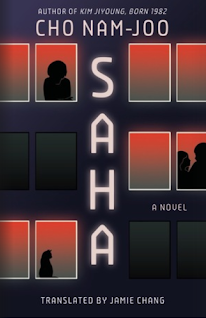The God of the Woods by Liz Moore tells the story of a camp named Self-Reliance in the Adirondacks, owned by a family that is anything but self-reliant. Instead, the family thrives on lies, secrets and inequality.
Peter Van Laar, wealthy and proud of his numerous New York business connections, owns a children’s the summer camp that has been in the family for three generations. A small town nearby, Shattuck, supplies cooks, groundskeepers and maids who appreciate steady work in the rural setting and are willing to keep secrets to protect the Van Laars and their own families.
Alice, Peter’s wife, is timid and fragile, and the couple has two children, Bear and Barbara. The siblings, destined to never meet, are nothing like the parents nor each other, yet both display deep appreciation for the forest as well as kind and attentive camp staffers.
In 1961, Bear goes missing and is presumed dead. A grounds man who had befriended the boy has a heart attack soon after the search begins and becomes an easy scapegoat for the authorities. The boy’s body is never found.
The couple quickly has another child, Barbara, who is difficult and unconcerned about her appearance. Alice, insecure and unnerved by her husband’s age and ambition, tries to raise Barbara as she was raised, believing “that part of a mother’s duty was to be her daughter’s first, best critic; to fortify her during her childhood, so that in womanhood she could gracefully withstand any assault or insult launched in her direction.”
In 1975, Barbara vanishes from the camp.
Camp counselors are typically former campers from the wealthy families, but Louise, Barbara's counselor, stands out for growing up in Shattuck and not completing college. Instead, she obtained the competitive position after dating John Paul, son of one of Van Laar's wealthy friends. Theirs is an unlikely match though: Louise is a poor local, who “continually found herself entangled in tricky situations without meaning to be, and at last she resigned herself to the idea that in a place as small as Shattuck, no one was permitted to be invisible. She was pretty, athletic, intelligent, but also poor, and the daughter of an alcoholic.”
John Paul abuses various substances and manipulates Louise, pretending the two are engaged but keeping the relationship a secret from friends and family. Alice sees the flaws in John Paul and other children of her husband’s friends. They “already had the air that all these men had. The feeling he was owed something. Everything.” But since Bear's death, Alice is unstable and quiet, relying on medication and alcohol to get through each day.
When Bárbara goes missing, John Paul takes off in his car and is later arrested for drunk driving. Bloodied clothes are found in his car, and he claims they were given to him by Louise. History repeats and she immediately becomes a suspect.
Fortunately, the young state police investigator has experience observing entitlement and inequality in action, noting that the rich, “generally become most enraged when they sense they’re about to be held accountable for their wrongs.”
A few townspeople bitterly recall the unfair accusations associated with Bear’s disappearance from years before, and they assist Louise in large ways and small.
In the end, both Van Laar children are found – one dead and the other alive. And the investigator realizes that the poor are truly the self-reliant ones. They do fine and “don’t need on anyone but themselves.” On the other hand, “it’s the Van Laars, and families like them, who have always depended on others.”
Threats lurk in the woods surrounding the camp, but there are also “gods” who may come to the rescue.










